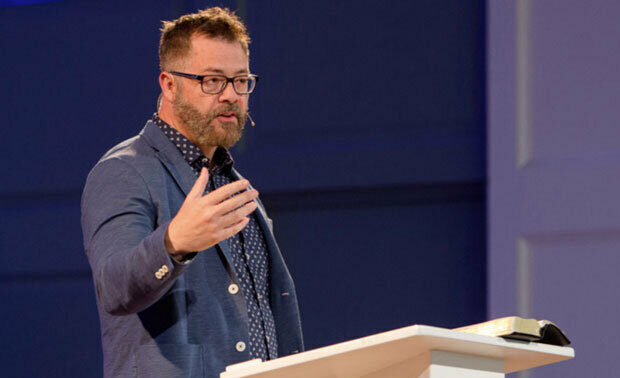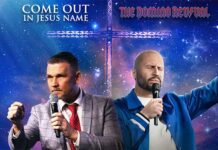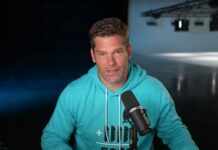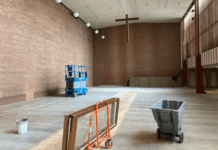Last week, Seacoast Church in Mount Pleasant, South Carolina announced their teaching pastor, Darrin Patrick, died unexpectedly. Patrick, who was scheduled to give a message as a visiting pastor at Robby Gallaty’s Long Hollow Baptist church in Tennessee this coming weekend, is believed to have died by suicide. Those who knew Patrick remember him as a man who came back after a moral failure.
“Darrin was target shooting with a friend at the time of his death. An official cause of death has not been released but it appears to be a self-inflicted gunshot wound. No foul play is suspected,” a statement from Seacoast Church reads. The statement went on to say that “God allowed Seacoast to be a part of Darrin’s story in a time when he needed a family.”
Patrick left behind his wife, Amie, and their four children. On May 9, Amie posted to Patrick’s Facebook account thanking everyone for the outpouring of support the grieving family has received. “We are heartbroken beyond belief, terribly confused, and missing Darrin in ways that feel unbearable,” Amie wrote.
Patrick’s Most Recent Messages
Patrick recently recorded a podcast with his friend and fellow pastor at Seacoast Church, Greg Surratt. The topic of the discussion was on experiencing loneliness and “aloneness” in ministry, feelings Patrick admitted he felt “a lot.” Patrick explained the position of a pastor puts someone in a “lonely and confusing place” as they often share quite personal stories about themselves and their families while preaching, yet don’t have the time or ability to actually be friends with everyone in their churches. Patrick and Surratt went on to discuss how difficult it can be for pastors to find true and supportive friends.
Last weekend, a sermon Patrick recorded was shown on Seacoast Church’s online service. Patrick preached on loneliness and how believers wrestle with God. Preaching from Genesis and focusing on the story of Jacob, who fled to the desert and wrestled with God, Patrick said, “It’s in the lonely places that God shows up.”
Patrick then applied the message of Jacob’s story to our current collective situation under stay-at-home orders by saying “Sometimes, friends, the only way to meet God is in quarantine. The only way to meet God is in isolation. The only place God is to be found is in loneliness. The only place where we can really worship is in brokenness.” Patrick admitted “I hate that so bad!” emphasizing the word hate. However, “when we look at the narrative arc of Scripture, that’s exactly what we see.” At the end of his sermon, Patrick shared the gospel with those listening and invited them to enter into a relationship with Christ.
On a Give Send Go page set up to support the Patrick family after the sudden death of their patriarch, one person’s comment seemed to summarize all the others offered there: “Thank you for helping me make my relationship with God even closer. Your loving heart and kindness will be missed terribly. Rest in peace.”
Patrick Knew What It’s Like to Struggle
Patrick was fired from The Journey in St. Louis, Missouri, in 2016. The Patricks started the church in 2002 and developed it into a 3,000-member congregation. As ChurchLeaders reported in 2016, in a letter explaining Patrick’s firing to their members, The Journey wrote Patrick was asked to step down, not because of adultery, but because he “did violate the high standard for elders in marriage through inappropriate meetings, conversations and phone calls with two women (I Tim. 3.2).” More succinctly, they cited “historical patterns of sin” and “other deep sin patterns in Darrin that do not reflect the biblical qualifications for an elder.”
After leaving The Journey, Patrick pursued a path of restoration, which his friends in ministry, including his mentor, Surratt, believe he navigated with integrity. The restoration process was 26 months long and included over 200 hours of professional counseling. Patrick spoke to Ed Stetzer after completing the process in 2019. He described the most important element of the restoration process as being speaking to those he had wounded as a pastor and asking for their forgiveness.
In that interview, Patrick said being overly occupied with building his own personal platform was a major factor in his downfall: “By being emotionally unavailable, being on the road speaking at conferences and being in my study writing books, I neglected our leaders in view of building my platform. I left them with the burden of a growing, multi-site church instead of bearing that burden appropriately with them.” In this interview and others, Patrick expressed the regret he continued to feel over his sin.












